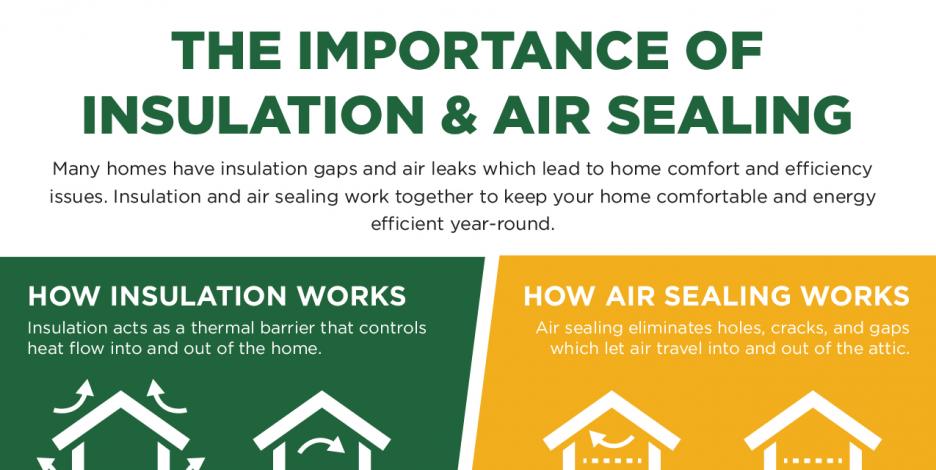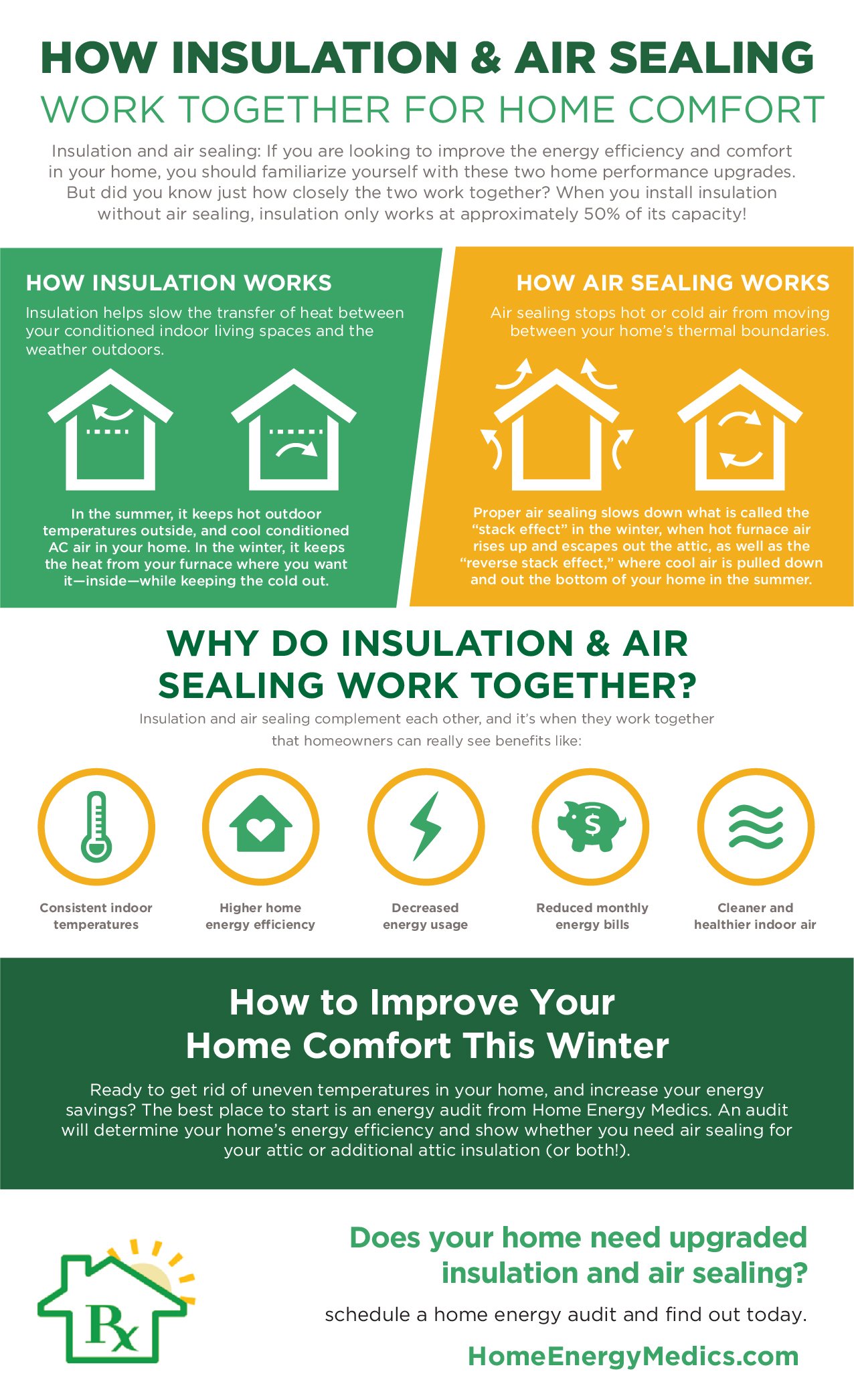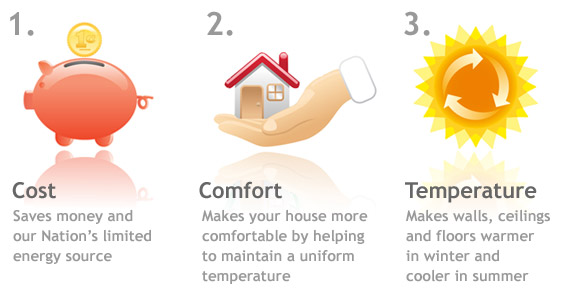Send us an email
Please enter your name and contact info.
Please enter your name and contact info.
Call Us Today! (850) 748-1066

Serving Families Throughout Pensacola
In the quest for optimal HVAC efficiency, it’s important not to overlook the crucial role of insulation and sealing. Ensuring that your HVAC system is properly insulated and sealed can have a significant impact on energy consumption and overall performance. By preventing air leakage and heat transfer, insulation and sealing help to maintain a consistent indoor temperature, reduce energy waste, and enhance the comfort of your home or workspace. In this article, we will delve into the significance of insulation and sealing in HVAC efficiency and how Diamond Air Design, a leading HVAC repair provider in Pensacola FL, can help you achieve optimal performance for your system.
When it comes to HVAC systems, insulation and sealing play a crucial role in ensuring optimal efficiency. These two factors not only help in reducing energy waste but also enhance the overall performance of the system. In this article, we will explore the benefits of insulation, different types of insulation materials, proper installation techniques, as well as the importance of sealing, areas to focus on for sealing, and common sealing techniques. We will also delve into the relationship between insulation and sealing, factors affecting HVAC efficiency, and the benefits of improved efficiency. Furthermore, we will discuss how to select the right insulation and sealing products, the importance of regular maintenance and inspection, and when to seek professional assistance. Lastly, we will highlight some common mistakes to avoid when it comes to insulation and sealing in HVAC systems.
Insulation plays a vital role in HVAC efficiency by reducing the transfer of heat between the indoor and outdoor environments. By providing a barrier against heat flow, insulation helps to maintain a consistent temperature in your home or building, reducing the workload on your HVAC system. This, in turn, leads to energy savings and lower utility bills. Insulation also helps to minimize the transmission of sound, improving the overall comfort levels of your space.
There are various types of insulation materials available, each with its own unique properties and benefits. Some common types include fiberglass, cellulose, spray foam, and rigid foam. Fiberglass insulation is one of the most popular options due to its affordability and ease of installation. Cellulose insulation, made from recycled materials, offers excellent thermal resistance and is eco-friendly. Spray foam insulation provides an air-tight seal, preventing air leakage and improving energy efficiency. Rigid foam insulation is known for its high insulating value and moisture resistance.

This image is property of greenteamli.com.
Proper installation of insulation is essential to maximize its effectiveness. It is crucial to ensure that insulation is installed without gaps, voids, or compression, as these can compromise its performance. To achieve optimal results, it is recommended to hire a professional insulation installer who has the expertise and knowledge to correctly install insulation materials. With their experience, they can identify potential areas for insulation and make sure that the material is installed using the appropriate techniques.
While insulation plays a significant role in reducing heat transfer, sealing is equally important in preventing air leakage. Air leaks can cause energy losses and force your HVAC system to work harder to maintain a comfortable temperature. By properly sealing your home or building, you can minimize drafts, improve indoor air quality, and enhance HVAC efficiency.

This image is property of greenteamli.com.
To ensure effective sealing, it is important to identify the areas that are prone to air leakage. Common areas include doors, windows, electrical outlets, plumbing penetrations, and ductwork. Sealing these areas can significantly reduce the infiltration of outdoor air and increase energy efficiency.
There are several techniques that can be used to seal air leaks in your home or building. Caulking and weatherstripping are commonly used for sealing gaps around windows, doors, and other openings. These materials create an airtight seal and prevent outside air from entering and conditioned air from escaping. Another effective sealing technique is the use of foam sealants, which can be used to seal larger gaps and cracks. Additionally, sealing ductwork using HVAC-specific tapes or mastic can prevent air leaks and improve the distribution of heated or cooled air.

This image is property of www.homeenergymedics.com.
Insulation and sealing are complementary to each other when it comes to HVAC efficiency. While insulation helps to reduce heat transfer, sealing prevents air leakage. By combining these two approaches, you can achieve enhanced HVAC efficiency and maximize energy savings. Proper insulation ensures that the conditioned air stays inside your home or building, while sealing prevents exterior air from infiltrating. Together, insulation and sealing create a more comfortable and efficient indoor environment.
When insulation and sealing are used together, the overall HVAC efficiency is greatly improved. By reducing heat transfer and preventing air leaks, the workload on the HVAC system is reduced, leading to energy savings. A combined approach also helps to maintain a consistent temperature throughout your home or building, providing enhanced comfort and indoor air quality.

This image is property of www.justrite.com.au.
There are several factors that can impact the efficiency of your HVAC system. Energy loss through conduction and air leakage are two significant factors that can lead to increased energy consumption. Inadequate insulation and leaks in the building envelope can result in heat loss during the winter and heat gain during the summer, forcing your HVAC system to work harder to compensate.
Inadequate insulation and air leaks can have a significant impact on energy consumption. Without proper insulation, heat can easily escape during the winter, forcing your HVAC system to work harder to maintain a comfortable temperature. Similarly, during the summer, heat can enter your home or building through leaks, causing your HVAC system to run for longer periods to cool the space. This increased energy consumption not only leads to higher utility bills but also contributes to environmental pollution.

This image is property of www.fhfurr.com.
proper insulation and sealing are essential in reducing energy waste and improving HVAC efficiency. By creating an effective thermal barrier and sealing air leaks, you can minimize heat loss or gain and maintain a comfortable indoor environment. This not only reduces the workload on your HVAC system but also leads to energy cost savings and a reduced environmental impact.
Improved HVAC efficiency brings a range of benefits to homeowners and building occupants. Here are some of the key advantages:
Enhanced efficiency translates into lower energy consumption, resulting in reduced utility bills. By minimizing heat loss, heat gain, and air leakage, you can achieve significant cost savings over time.
With improved HVAC efficiency, you can enjoy a more comfortable living or working environment. Proper insulation and sealing help to maintain a consistent temperature, reduce drafts, and minimize the entry of outdoor pollutants, resulting in better indoor air quality.
By reducing energy waste, improving HVAC efficiency helps to reduce the environmental impact associated with energy production and consumption. Lower energy consumption means fewer greenhouse gas emissions, contributing to a more sustainable future.
When it comes to selecting insulation and sealing products, it is important to consider various factors. Understanding R-value and U-value is crucial in assessing the thermal resistance and heat transfer characteristics of insulation materials. Higher R-values indicate better insulation performance, while lower U-values indicate reduced heat transfer. Other factors to consider include the specific requirements of your project, such as moisture resistance, fire resistance, and environmental impact. Additionally, when choosing sealing products, ensure they are compatible with the materials being sealed and suitable for the specific application.
Regular maintenance and inspection of your HVAC system are essential to ensure optimal performance. It is important to schedule regular maintenance checks with a qualified HVAC technician to identify any issues or potential problems. During these inspections, it is crucial to assess the integrity of the insulation and sealing. Any damage or wear should be addressed promptly to maintain the efficiency of your HVAC system.
During maintenance inspections, it is important to examine the condition of insulation and sealing materials. Look for signs of damage, such as compression, sagging, moisture intrusion, or pest infestation. Pay attention to areas where insulation or sealing may have become dislodged or compromised, as these can impact the overall efficiency of your HVAC system.
If any issues are identified during maintenance inspections, it is important to address them promptly. Troubleshooting and repair should be carried out by a qualified professional to ensure proper installation or replacement of insulation and sealing materials. DIY repairs may lead to improper installation, which can adversely affect the performance of your HVAC system.
When it comes to insulation and sealing projects, you may consider whether to undertake them yourself or hire professionals. Here are some factors to consider:
If you have experience and knowledge in insulation and sealing techniques, you may choose to undertake DIY projects. DIY can be a cost-effective option, but it is crucial to ensure you have the necessary skills, tools, and materials to complete the project correctly. Additionally, be aware of any local building codes or regulations that may impact the installation process.
Hiring professionals for insulation and sealing projects offers several advantages. Professionals have the expertise and experience to ensure proper installation, which is crucial for optimal performance. They are knowledgeable about insulation and sealing materials and can recommend the most suitable products for your specific needs. Moreover, professionals can carry out inspections, troubleshoot issues, and perform repairs to maintain the efficiency of your HVAC system.
If you are unsure about your abilities to install insulation or seal air leaks correctly, it is recommended to seek professional assistance. Professionals can provide expert guidance, assess your specific requirements, and ensure that the insulation and sealing are done correctly. Hiring professionals can save you time, minimize the risk of mistakes, and give you peace of mind knowing that your HVAC system is operating at its best.
To ensure optimal HVAC efficiency, it is important to avoid common mistakes related to insulation and sealing. Here are a few to watch out for:
Improper installation of insulation can significantly reduce its effectiveness. It is crucial to follow manufacturer guidelines and use the correct techniques to achieve a proper installation. Avoid compressing or leaving gaps in insulation materials, as this can compromise their thermal resistance.
Air leaks can undermine the performance of your HVAC system. Neglecting to seal air leaks effectively can lead to energy waste and decreased efficiency. Be thorough in identifying areas of potential air leakage and use appropriate sealing techniques to address them.
Regular maintenance and inspection are crucial for HVAC systems. Neglecting routine maintenance can lead to issues with insulation and sealing, as well as decreasing the overall efficiency of your system. Make sure to stay on top of maintenance tasks and promptly address any concerns to maintain optimal HVAC performance.
In conclusion, insulation and sealing play a pivotal role in HVAC efficiency. They contribute to energy savings, improved comfort, and reduced environmental impact. By selecting the right insulation and sealing products, maintaining their integrity through regular inspections, and addressing any issues promptly, you can maximize the efficiency of your HVAC system. Whether you choose to undertake DIY projects or hire professionals, proper installation and regular maintenance are essential for optimal performance. By avoiding common mistakes and investing in insulation and sealing, you can enjoy the benefits of a highly efficient HVAC system that enhances both your comfort and your energy savings.